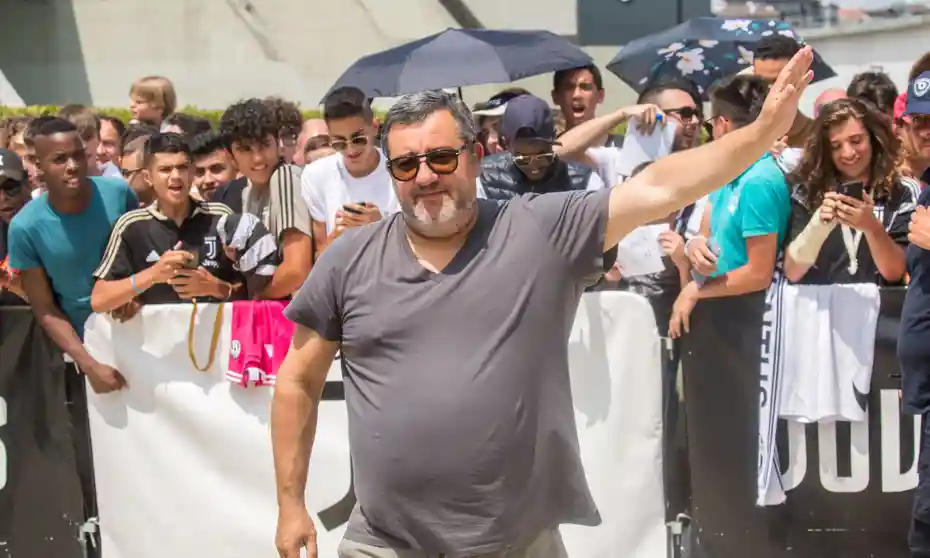Mino Raiola was a football agent who belonged to a different league of wheelers and dealers in the game, a league in which he was largely responsible for some of the largest transfer prices ever witnessed in football.

During his tenure as a super-agent, the economics of football shifted in favour of agents to the point that the sport’s governing body (FIFA) declared war on the sport’s middlemen, a move that enraged Raiola. He was also renowned for his aggressive personality, and he has feuded with a number of managers across leagues and teams over his player management.
His death, at the age of 54, happened as two of his most famous clients, Manchester United midfielder Paul Pogba and Borussia Dortmund striker Erling-Braut Haaland, were in the midst of a summer of transfer wars and signature hunting. Raiola had been unwell for a long time, had surgery in January of this year, and was mistakenly declared dead only a few days ago.
Football agents earned $653 million in commissions in 2019, according to reports. According to the Guardian, this is an increase of 18% over the previous year. Using Forbes statistics, it was determined that, despite having fewer players than other super-agents, Raiola profited about £800,000 each contract. This was mostly due to the high quality of players represented by his agency, as well as one other factor: his propensity to cause problems for the player’s current club.
He made millions representing all parties involved in the Pogba to Manchester United trade, taking commissions from the player, the purchasing club, and the selling club to arrange a then-world-record transfer fee for the Frenchman to return to his old club in Manchester.
Raiola was able to increase the value of select football players under his management by merely causing dissension in the player’s present club. He’d criticise management, the club’s manager, and essentially retain his players’ image as talented but underutilised and settled but ready to transfer.
The ruse would succeed because the club would stay unstable, but the player’s stock would seldom fall due to injury or bad form. Pep Guardiola, he once suggested, should be sent to a mental facility for keeping Ibrahimovic on the Barcelona bench. However, such is the influence of the agency and his ability to create relationships with his clients that Manchester City’s manager, Pep Guardiola, continues to make Raiola client Erling-Braut Haaland a major target this summer.
In his memoir, Sir Alex Ferguson described his connection with the Dutch agency as “oil and water.” Raiola, according to the former Manchester United great, is to blame for foment friction among the club and Pogba, which resulted in the promising youth heading to Juventus on a free transfer from England.
Before his death, Raiola co-founded the Football Forum with fellow super-agent Jonathan Barnett (Agent of Gareth Bale, Mason Mount and Jack Grealish). This was in response to FIFA’s efforts to alter the role of agents in football through commissions.
The Football Forum wanted to bring together all of the world’s agents under one roof and fight FIFA’s upcoming agency fee judgments. Raiola even went so far as to declare that “FIFA will not exist in ten years.”
According to FIFA’s new agent regulations, an agent representing a purchasing club would be paid 3% of the transfer fee, while an agent representing a selling club would be paid 10% of the transfer fee. Importantly, the new rules would require an agent to represent one of three parties: the player, the selling club, or the purchasing club, but not all three. An exception would have been if all parties involved agreed that the agency may represent both the buying club and the athlete.
The upcoming war against FIFA was one that he would finally be unable to symbolise for a man who had always fought tooth and nail for his players and for himself.
